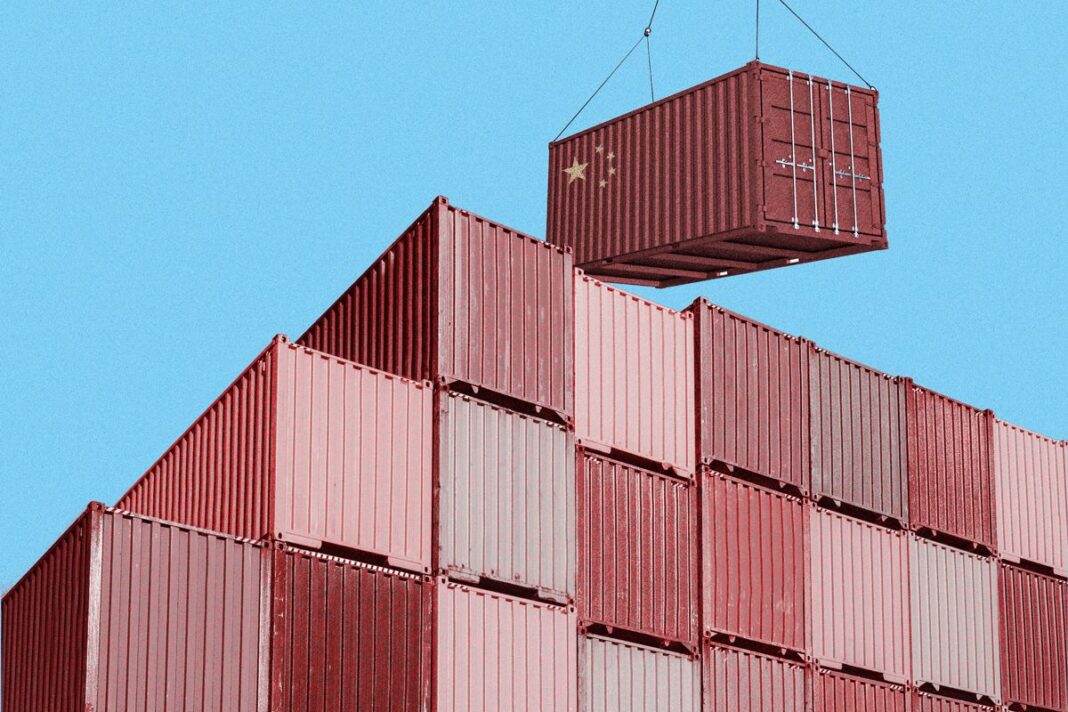With up to 245 percent U.S. tariffs, Chinese manufacturers are losing orders from foreign buyers and trying to find ways to offload their goods.
News Analysis
China’s exporters are scrambling to find domestic buyers for their consumer goods as orders from the United States have dried up during an escalating trade war.
On Chinese social media platforms, exporters joined the domestic direct-to-consumer livestream market, attempting to offload products that were initially meant for foreign customers. Some factories have slowed or halted production.
A raft of China’s e-commerce giants launched plans to help exporters pivot toward domestic markets, but some experts say China’s domestic consumers won’t be able to fill the gap.
If the trade war persists, “the damage to the Chinese economy will be far greater than the impact to the U.S. economy,” U.S.-based China affairs commentator Wang He told The Epoch Times.
On April 9, U.S. President Donald Trump hiked the reciprocal tariff rate on most Chinese products to 125 percent. A White House fact sheet published on April 15 noted that the latest increase meant some Chinese products now face U.S. tariffs of up to 245 percent. The rate includes a 20 percent tariff that Trump previously announced, as well as Section 301 tariffs of up to 100 percent that had been imposed during the Biden administration.
Beijing retaliated on April 11, raising tariffs on U.S. imports from 84 percent to 125 percent.
According to Chinese financial publication Caixin, by April 10, there were almost no U.S.-bound container ships at ports in Shanghai, and containers that didn’t make it before the deadline were left stranded.
Decreased Shipping
Ma Linhai, owner of women’s fashion brand Geling, began live streaming at a container yard in Shenzhen on April 11. In short videos published up to April 22 on Douyin, China’s version of TikTok, Ma and one of his employees said the company had 10 containers of clothing stranded at the container yard, costing thousands of yuan a day in storage fees. Ma said he was clearing the stock at an 80 percent discount.
On the app Xiaohongshu, or Rednote, dozens of sellers have broadcast livestream videos showing goods produced for U.S. customers that they could no longer sell because of the high U.S. tariff rates.
By Lily Zh








